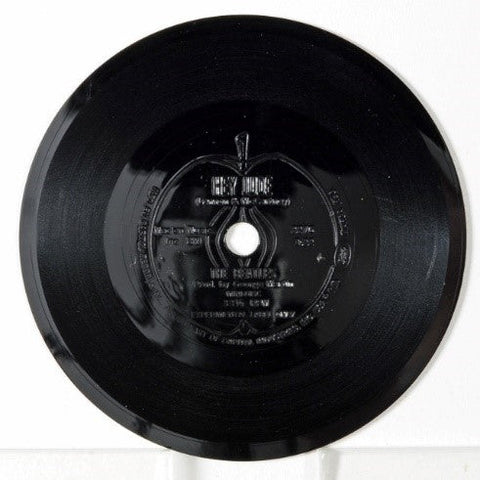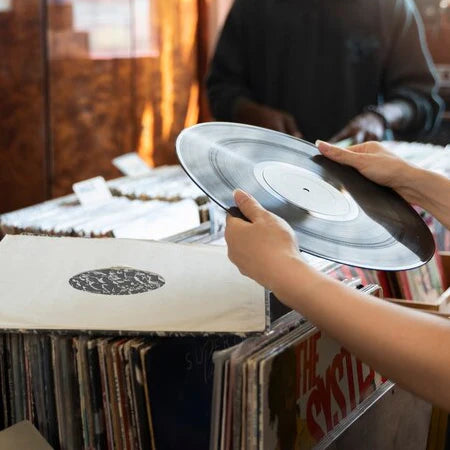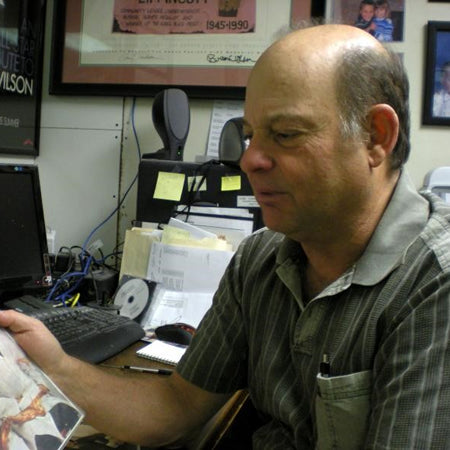

Previously undocumented rigid vinyl version of a rare flexi-disc.
The Beatles - Hey Jude/Revolution (Apple/Capitol 2276) 1968 US original 3.75" vinyl 33 1/3 single

Side 1, Hey Jude

Side 2, Revolution
From the end of 1968 through 1969, Capitol Records test marketed a line of 2-sided, 3.75" flimsy flexible plastic records (generally known as flexi-discs). One brand of these flexi-discs named "Pocket Discs" was manufactured by a company called Americom for a variety of record labels -- including Capitol Records. The purpose of these flexi-discs was to sell portable records that could fit into a small space (like a coat pocket). They were sold in vending machines for 50 cents each -- about half the price of a 7" 45rpm vinyl single. Included in the Capitol Records series were three Apple Records Beatles titles (with various B-Sides), "Hey Jude", "Get Back" & "The Ballad of John & Yoko". There were also five non-Beatles Apple titles made, including "Give Peace a Chance" by The Plastic Ono Band.
Each Beatles 33 1/3 rpm Pocket Disc plays a mono version of each song and they all play the full-length versions, except for one. The exception is Hey Jude, which plays a 3:25 edited version, due to space and quality limitations. The original version of the song runs 7:11. These Pocket Discs are very sought after by collectors today, often fetching $300-$1000 each when offered for sale.
Recently discovered in a former long-time Capitol Records executive's collection is a RIGID VINYL version of the Hey Jude Pocket Disc flexi-disc. It is the same size as the flexi-disc and the labels have a similar layout and text, but there are significant differences. For instance, unlike the flexible Pocket Disc version, none of the text information is silkscreened or printed on the label area of the vinyl disc -- it is embossed (molded) right into the hard plastic. And the vinyl record has "sliced" Apple labels/imprints on both sides, not just one. Also, the Pocket Disc brand name and logo do not appear anywhere on the vinyl disc. Further, the perimeter print with the Capitol logo is the same as the Pocket Disc, but below "The Beatles" on the label are the phrases "Mini-Disc" and "Experimental Label Only". Lastly, the running time for the 'A' side (Hey Jude) is shown as 3:22 but this is incorrect. It not only doesn’t play the 3:25 flexi-disc version, it actually plays a unique 4:07 version.
Since there is no longer any documentation which discusses the reason for the existence of this vinyl rarity, we can only surmise that it may be a Capitol prototype which was used as a possible sample for Americom when they were in the pre-release design phase of the flexi-disc. Since Hey Jude was the first Beatles title issued, this makes logical sense. In addition, the editing of the song was done by Capitol, not Americom. Capitol would have needed to complete the editing and mastering prior to handing the record over to Americom for manufacture, so this could also be Capitol's test record of their completed work. There may be other theories about this record's existence, but each would simply be conjecture. Not only was this record previously not known to exist, its possibility was not even discussed. It took almost fifty years for this major discovery to surface. It is currently the only known copy that exists, making it the world's rarest Beatles record (not including one-off acetates or test pressings) - and it is a completely unique format! As far as we know, Capitol never manufactured vinyl records of this nature before or since.
This record is currently not listed in Perry Cox's US Beatles Price Guide or Bruce Spizer's Beatles on Apple Records reference book. It's a unique version of an already-scarce and unusual Beatles record and it will be included in future editions.
The record has been authenticated in person by both Rockaway Records and Perry Cox.





